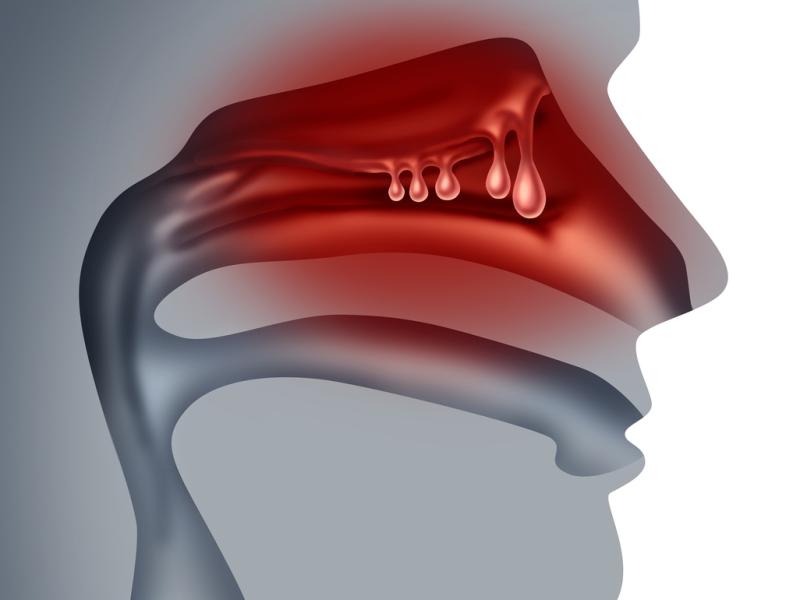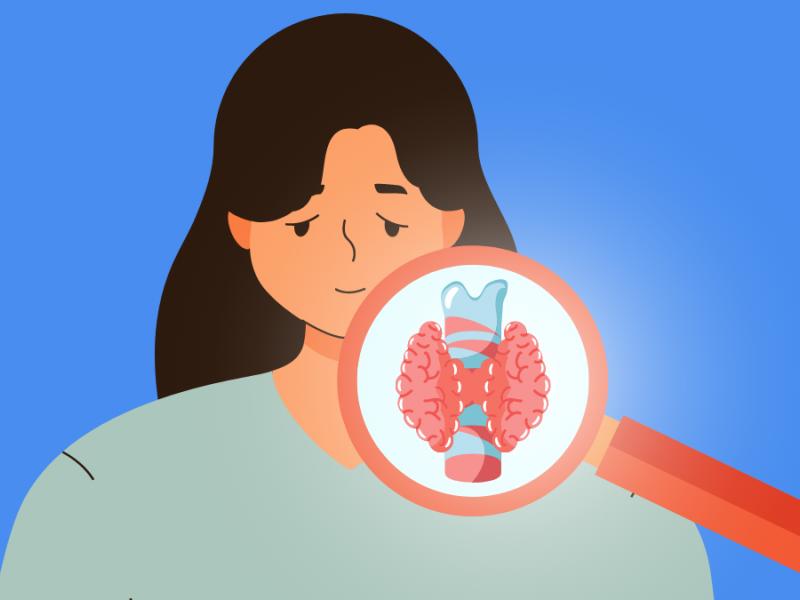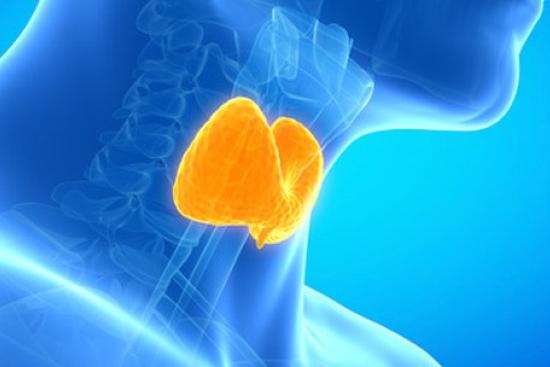Hyperthyroidism: What is it?
The thyroid is a gland in the neck that produces hormones that regulate the body's metabolism. The thyroid hormone's thyroxine (T4) and triiodothyronine (T3) regulate many physiological processes, including growth and development, thermogenesis, oxygen consumption, and protein synthesis. Impaired thyroid function can have significant health consequences.
Hyperthyroidism (overactive thyroid) is a clinical condition characterized by increased synthesis and secretion of thyroid hormones produced by the thyroid gland.
Causes of hyperthyroidism
The causes of hyperthyroidism can be different:
- Graves' disease: This is the most common cause of hyperthyroidism. It is an autoimmune disease caused by an alteration in the immune system that causes the thyroid to produce too much thyroid hormone. It can affect the thyroid at any age and is more common in smokers.
- Thyroiditis: Inflammation of the thyroid gland can cause the release of thyroid hormones.
- Thyroid Nodules: In some cases, they can produce excess thyroid hormone.
- Using iodine supplementation: Iodine in food is used by the thyroid gland to produce hormones. Excessive consumption of iodine supplements can therefore stimulate thyroid activity.
- Using amiodarone: this drug, used to control heart rhythm alterations, contains a significant amount of iodine that can induce alterations in thyroid function.
- Follicular thyroid tumor: Thyroid tumor cells can produce thyroid hormones.
Diagnosis of hyperthyroidism
In the presence of alterations in thyroid function, tests should be performed to verify thyroid function and health. In particular, thyroid Doppler ultrasound is a diagnostic test that is neither painful nor invasive. This test does not require the administration of radiation. Therefore, it can be performed on patients of all ages, including pregnant women.
Occasionally, a thyroid scan may be necessary, but this is rare and is only done on the advice of an ENT specialist.
If it is necessary to detect immunological phenomena against thyroid cells, a thyroid autoantibody test can be performed. These are tests that should only be performed if there is a suspicion of thyroid damage, as shown by an ultrasound scan, or if there is an impairment of function. If you want to know whether a nodule is malignant or benign, a thyroid biopsy is recommended.
Functional alterations in Hyperthyroidism
In the presence of altered thyroid function, particularly in the case of hyperthyroidism, functional changes in the body may occur:
- Changes in weight, which in hyperthyroidism is characterized by its reduction due to an acceleration of metabolism.
- Weakness and fatigue, i.e. loss of energy and muscular strength, which is already noticeable at the beginning of a new day, despite regular nightly rest.
- Alterations in the psycho-intellectual sphere, which in the most severe forms are manifested by very non-specific signs: hyperthyroidism with insomnia, nervousness, and mood swings.
- Intolerance to heat in hyperthyroidism and to the cold in hypothyroidism, due to an energetic decoupling between the metabolic needs of the body and the alteration of thyroid function. This means that the body's basal metabolic rate produces more or less heat than the body needs due to the excess or deficiency of thyroid hormone.
- Alteration of cardiac activity due to the direct effects of thyroid hormones on cardiac muscle cells, vascular walls, and the neurovegetative system. Thus, in the presence of excess thyroid hormone, the patient reports accelerated heart rate (tachycardia) and palpitations.
- Intestinal disorders, secondary to the action of thyroid hormones on the intestinal muscles, which in the case of hyperthyroidism are characterized by an increase in the contraction of intestinal muscles with the production of poorly formed stools.
In women, functional thyroid disease can lead to menstrual cycle disorders and fertility problems (reduced conception rates, implantation difficulties, spontaneous abortions, and other fetal problems). The link between the thyroid and fertility is not entirely clear, but it is clear. Causes that could directly interfere with the implantation of the fertilized egg could include thyroid autoimmunity (alone or in combination with other unknown types of autoimmunity), especially if it results in thyroid insufficiency or hyperthyroidism.
Reduced maternal thyroid activity or excessive thyroid hormone production may cause problems for the fetus, especially during the first three months of life.






